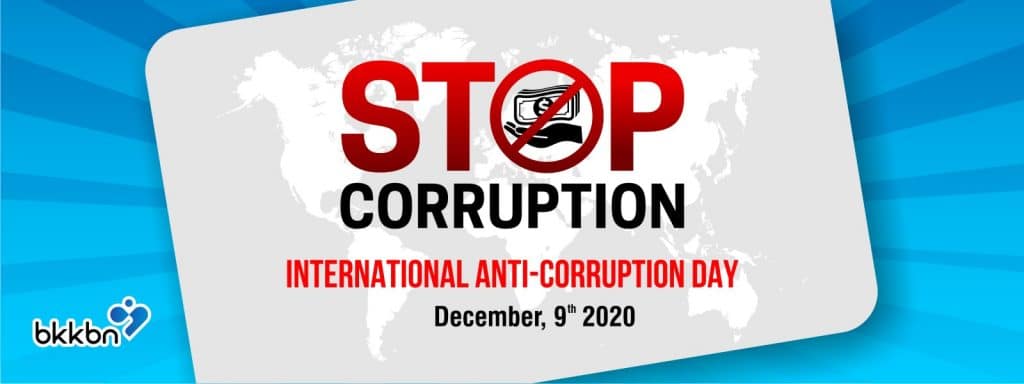 Corruption is one of the scourges that are still deeply rooted in many countries. Various methods and laws are tried to be enforced to eradicate the corruptor who enjoy partying and enjoying the wealth they get hastily, especially during the COVID-19 pandemic that has hit the world.
Corruption is one of the scourges that are still deeply rooted in many countries. Various methods and laws are tried to be enforced to eradicate the corruptor who enjoy partying and enjoying the wealth they get hastily, especially during the COVID-19 pandemic that has hit the world.
There are many cases of corruption that take advantage of aid funds provided by the government to the community. It is so ironic, particularly when UN Secretary-General, António Guterres said, “Corruption is criminal, immoral and the ultimate betrayal of public trust. It is even more damaging in times of crisis – as the world is experiencing now with the COVID-19 pandemic. The response to the virus is creating new opportunities to exploit weak oversight and inadequate transparency, diverting funds away from people in their hour of the greatest need.”
In this pandemic era, many officials use their power to reap profits in ways they shouldn’t. This creates a domino effect in the society. With money being corrupted, people certainly did not get maximum assistance from what they should have received.
Quoted from the website www.un.org, the highlight of the anti-corruption day celebration which falls on December 9 2020, is “RECOVER with INTEGRITY”. This highlight has the meaning of reducing the risks of mismanagement and corruption during the pandemic requiring the involvement of strong anti-corruption bodies, better oversight over emergency support packages, more open and transparent public procurement and enhanced anti-corruption compliance by the private sector.
Corruption attacks the foundations of democratic institutions by distorting the electoral process, violating the rule of law, and creating bureaucratic problems. Not only that, corruption also blocks economic development, as the foreign direct investment is discouraged, and domestic small businesses often find it impossible to overcome the initial costs required due to corruption.
Another problem that is often found in fear of the public to report the corruption activities they have witnessed. The absence of legal protection has made witnesses silent about the corruption activities that have occurred. Therefore, every country also needs to ensure support to and protection for whistle-blowers and journalists uncovering corruption, especially during the pandemic.